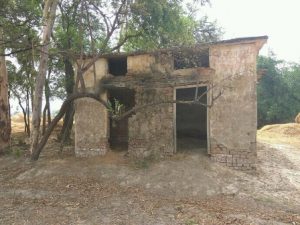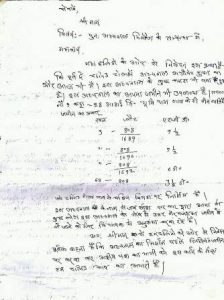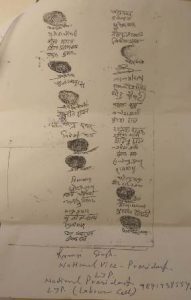Lack of rural healthcare: Story of Bihar’s Phag
There are many villages in India like Phag which do not have access to any good-quality primary healthcare centre.

A hospital was constructed in 1960 which had one primary care doctor. But he too stopped coming after a while. Now, the building stands unusable for people and has become the temporary cattle shed. A nurse and a compounder are posted in the healthcare centre but they hardly come. Welcome to Phag – a village situated in Aurangabad district of Bihar which houses a population of more than two thousand.
The only primary healthcare centre in the village, the land for which was willingly given by the some villagers almost 40 years ago has now been taken back “illegally” by them, says one of the villagers, Premchand Paswan. “There is no documentary proof of the land, that’s why people are overtaking the land,” he says.
Another primary healthcare centre is located at a distance of 10 kilometres in Goh Tehsil but the villagers of Phag don’t have any mode of quick access owing to lack of transportation. This also results in treatment delays causing harm to people and their lives.
Also read: Healthcare corruption: Struggle for justice
According to Gramvaani.org, a social tech company incubated out of IIT Delhi, “Healthcare is the right of every individual but lack of quality infrastructure, dearth of qualified medical functionaries, and non-access to basic medicines and medical facilities thwarts its reach to 60 per cent of the population in India. A majority of 700 million people live in rural areas where the condition of medical facilities is deplorable.”

Ailing women have to be carried on cots to reach the nearby hospital in time. But many times, the patient does not get treatment on time in Phag.
This is not the story of just one village. There are many villages in India like Phag which do not have access to any good-quality healthcare centre.
“According to gov.data.in, an open government data platform, in Andhra-Pradesh 361, in Bihar 1,762, Rajasthan 2,035, Uttar Pradesh 1,560 villages are yet not getting health facilities. Note that these are only few states analysed. The number is considerably higher when other states are taken into account.”
Coming back to Phag, most of the people are farmers who don’t have much money to seek healthcare in private hospitals. So, they depend on the local untrained practitioners of medicines and rely on them for cure. They only think of approaching a hospital when the problem pertains.
Even for pregnant women, there are no facilities. Many of the women continue to suffer from malnutrition. But they take the help of Accredited Social Health Activist or ASHAs who work under rural health mission of government. Two-three days before the delivery, they call the patient and arrange for an auto which is the only one available there and take the patient to the primary care hospital in Goh block. In the rainy season, even this facility becomes inaccessible such that many times, women have lost their newborns.
Further, this hospital in Goh does not have many of the facilities. Many of the medicines are not available and so are the doctors.
Also read: Tier II, III cities’ District Hospitals to benefit from PPP model
George Institute for Global Health recently organised a round table conference in which ASHA workers and many frontline health workers spoke about the difficulties people face in rural areas in regard to health facilities. Kiran Devi, who works as an ASHA at Barona village in Haryana mentioned that many people in villages are not aware about diseases like diabetes, blood pressure etc.

Jyotima who works as a community health worker in Uttar Pradesh’s Shravasti district told Delhi Post that the villagers depend on illegal practitioners for treatment there. Although in Shravasti, people have got community health workers for healthcare but this is not same in all states.
In many villages, buildings for heath care centres have been built but still lack health facilities including approved medical devices.
Premchand, one of the villagers, told Delhi Post that recently all the villagers organised a meeting and filed a petition through Change.org to get the problem resolved.
“One of the villagers Shivsankar told Delhi Post that they went to the block officer, district public information officer and health secretary of Bihar to help them set up a fully-equipped and functional hospital but no action was taken.”
Now, an application with the signatures of villagers has been submitted to Chirag Paswan, Member of Parliament. Accepting the same, the MP has requested health minister of Bihar to built a primary healthcare centre at Phag.
The villagers say that “we have got hope that through this petition, our voices will be heard by the government and action will be taken”. But they seem to sense that their chances are bleak. Government is making many schemes for rural healthcare but villages like Phag don’t seem to get the requisite benefits. There is a need that the pleas of villages should be taken on record so that no mother has to face the death of her newborn or no senior citizen would have to die owing to lack of facilities. Also, if there are primary healthcare centres, people will not think twice before seeking authentic medical care.
